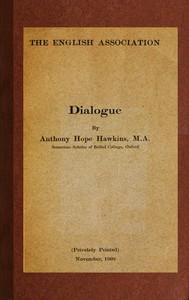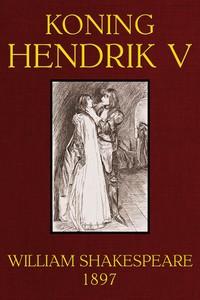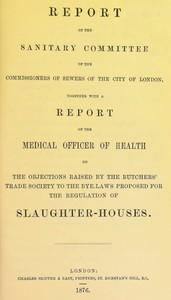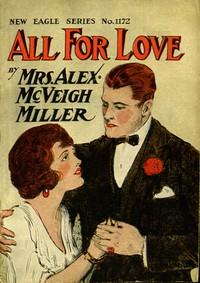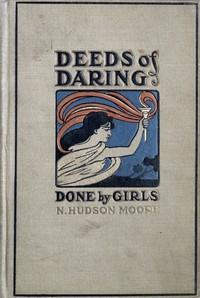|
|
Read this ebook for free! No credit card needed, absolutely nothing to pay.Words: 10216 in 2 pages
This is an ebook sharing website. You can read the uploaded ebooks for free here. No credit cards needed, nothing to pay. If you want to own a digital copy of the ebook, or want to read offline with your favorite ebook-reader, then you can choose to buy and download the ebook.

: Dialogue by Hope Anthony - English literature History and criticism; Dialogue@FreeBooksThu 08 Jun, 2023 at naturalness which is so pre-eminently its own where it is dealing with a clash of temperaments or with contrasted views of life. It seems to come at second hand, and the reader feels that he would sooner have been with A, who really saw the thing done, than merely with B, who is only being told about it by the actual witness. Again, I think there is little doubt that the ordinary reader is fatigued by too much talking, and that a long novel, mainly relying on dialogue and reducing narrative to a merely subordinate position, is in great danger of becoming tedious. This it may do in one of two ways--or, if it is very unfortunate, in both--at different places. The writer may try to tell too much by dialogue, with the result that his characters speak at great length, and he topples over the line which divides dialogue from speech-making. Or, on the other hand, alive to the perils of speech-making, he may try to cut it all up into question and answer, and to enliven it by constant epigrams or some other form of wit. This latter expedient may not bore the reader so much as the speech-making, but it will probably fatigue him more. Dialogue does, in fact, make a greater claim on the reader than narrative. I think this is true even when it is good dialogue. Something may be done to help him by skilful comment or description--clever stage-directions in effect--but none the less he is deprived, or curtailed, of much of the assistance on his way which the narrative form can give him. I think that probably the best advice to offer to a novice would be: As few long conversations as possible--but as many short ones. Let the dialogue break up the narrative, and the narrative cut short any tendency to prolixity in the dialogue. Now, so far as I know--but I hasten to add that I am not a wide reader of plays, though I am much addicted to seeing them acted--Mr. Bernard Shaw was the first among English dramatists to see and exploit fully the possibilities of stage-directions in helping the imagination of those who read, as distinct from those who see, his plays. Some of his stage-directions are, in my humble opinion, among the best things he has ever done--terse, humorous, incisive, complete--see, for example, his description of Mrs. Warren. But novelists were quicker to see the possibility of their stage-directions, their comments on moods, their descriptions of the actions or the gestures accompanying the spoken words. When you talk to a man or woman, you don't shut your eyes and merely listen to the voice. You do listen carefully to the voice--since he may say 'Yes' as if he really meant it, or as if he only half-meant it, or as if he meant just the opposite--but you also watch his eyes and his mouth--and in moments of strong excitement it is recorded of many a villain that his fingers twitched, and of many a heroine that her bosom heaved; so fingers and bosoms are worth watching too. Now the point is that a skilful use of these stage-directions can not only immensely assist the meaning of novel dialogue, but can also add enormously to its artistic value and merit. It can diffuse an atmosphere, impart a hint, create an interest by a dexterous suspending of the answer. This last is, from a professional point of view, a particularly pretty trick--it's not much more than a trick, but let us call it a literary device--and Sterne brought it to great perfection--and knew well what he was doing. I will make bold to quote a passage of his which bears on the whole subject, and shows both his method and the absolute consciousness with which he employed it--to say nothing of the shameless candour with which he laughs at his own trick. Corporal Trim is discoursing to his fellow servants on the death of Tristram's brother, Master Bobby. 'Are we not here now?' continued the Corporal 'and' 'gone in a minute?' Then Sterne digresses, and repeats--as his manner is. But he comes back--and is good enough to explain: 'Let us only carry back our minds to the mortality of Trim's hat,' he says. 'Are we not here now--and gone in a moment? There was nothing in the sentence--'twas one of your self-evident truths we have the advantage of hearing every day: and if Trim had not trusted more to his hat than to his head, he had made nothing at all of it.' And he proceeds: 'Ten thousand and ten thousand times ten thousand are the ways by which a hat may be dropped on the ground without any effect. Had he flung it, or thrown it, or cast it, or skimmed it, or squirted it, or let it slip or fall in any possible direction under heaven--had he dropped it like a goose, like a puppy, like an ass--or in doing it or even after he had done it, had looked like a fool, like a ninny, like a nincompoop--it had failed, and the effect upon the heart had been lost.' And he ends--most justifiably--'Meditate, I beseech you, upon Trim's hat!' Trim's hat may certainly stand as an instance of the value of stage-directions to novel dialogue. Returning to actually spoken words--the real talk between the interlocutors--we may note the great adaptability and elasticity of the dialogue form. The hesitation, the aposiopesis, the interruption, are all ready and flexible devices, apt to convey hints, innuendoes, doubts, objections, apt to convey the sense of a balance inclining now this way, now that, to show one mind feeling its way towards a knowledge of the other, while sedulously guarding its own secrets. Or you may seek the broader effects of comedy with the sudden betrayal of irreconcilable divergence, or of an agreement as complete as it is paradoxical, or of the mutual helplessness which results from total misunderstanding of the one by the other, or, finally, of the well-worn but still effective device--a favourite one in the theatre--of two people talking at cross-purposes, one meaning one thing, the other a different one, and the pair arriving at an harmonious agreement from utterly inharmonious premises--the false accord of a hundred scenes of comedy. Such are some of the arts of dialogue, as they are employed sometimes in the task of serious and delicate analysis, as for example by Mr. Henry James, sometimes in the cause of pure comedy, as by Gyp. That lady made an interesting experiment. She tried to indicate the gestures, wherein her countrymen are so eloquent, by a system of notation--so many notes of interrogation, or so many of exclamation, being B's response to A's spoken observation. But here, I think, she must be held to have resorted to 'business' as we have already discussed it, and to have passed beyond true dialogue. An 'Oh', an 'Ah!' or a 'Humph!' constitute about the irreducible minimum of that articulate speech which makes dialogue. Notes of exclamation won't quite do. One other function of dialogue deserves especial mention. Unless an author adopts the drastic course I have already alluded to--that of sinking himself absolutely in the personality of one of his characters and writing in the name and garb of that character--as for example did Defoe--and as, for example, does Sir Arthur Conan Doyle, when he plays Dr. Watson to Sherlock Holmes's 'lead' as they say in the theatre--unless he does this, dialogue alone will enable him to impart 'local colour', in other words, to set before his reader the speech and the mind of races or classes far different in their thoughts, in their modes of expression, and in their actual vocabulary and pronunciation, from what we may term the ordinary educated reader. Scores of Dickens's cockney characters, Mr. Hardy's Wessex rustics, Mr. Kipling's soldiers, live and move and have their being for us solely in virtue of what they say and the way they say it. In fact they couldn't be described--they must be seen and heard. They must be on the stage. Therefore they must use--their creators must use for them--that literary form which is, in the end, the link between novels and the stage--the form common to both--the form of dialogue. That last observation leads me naturally to pass on to the literary vehicle in which dialogue is in its glory--in which it is the sovereign instrument, in which it reaches its highest level of independence, in which it leans its lightest on any other aid than that inherent in its own capacity. This is the drama--and the drama written for the actual stage. I do not think that what are called 'plays for the study' need detain us. It is really only a question of degree in each case. They either approximate closely to the true stage-play or, on the other hand, they are really books in which, by artifice and often by an effort which is rather too visible, those parts that would naturally assume a narrative form, are presented in the guise of dialogue--or rather not so much of dialogue as we are now discussing it, but, as I should say, of speeches which are, in essence, either narrative, or argumentative, or reflective, or hortative in character. Still, all allowances made, it remains true that the stage offers the fullest, the fairest, and the most independent opportunity for pure dialogue--and it is necessary to ask the question--however hard the answer may be--what effect the medium of the theatre has upon dialogue. I admit at once that I think the question is very hard to answer. We are in presence of the indisputable fact that dialogue which is highly moving or amusing in a book may fall quite flat on the stage--while on the other hand dialogue which is very effective on the stage may sound either obvious or bald in a book. This is not to say, of course, that some dialogue will not be found good for both. Practical experiments are constantly being tried, owing to the habit of dramatizing novels which have achieved a popular success. The temptation is to carry over into the play as much of the dialogue of the novel as you can contrive to use; the object is to preserve as far as possible both the literary flavour and the commercial goodwill of the original. The result is interesting. The novelist, whether he acts as his own dramatist or not, will almost always notice, I think, that passages of dialogue which are most effective in the book are least effective on the stage--often that they need complete remodelling before they can be used at all. On the other hand, passages which he has little esteemed in the book--regarded perhaps almost as mere machinery, part of the necessary traffic of the story--make an immediate hit with audiences in the theatre. It is a commonplace in the theatrical world that there is no telling what 'they' will like--'they' means the public--not even what plays they will or will not like, much less what particular scenes or passages--and nobody with even the least practical experience would care to back his opinion save at very favourable odds. If then it is impossible to tell what they will or won't like, it seems still more hopeless to inquire why they will or won't like it; but that is, in reality, not quite the case. It is not, I think, so much that the playwright does not know what he has to do to please them, as that it happens to be rather difficult to do it, and quite as difficult to know when you have done it. Happily, however, we are to-night not on the hard highroad of practice, but in the easy pastures of criticism, and may therefore be bold to try to suggest what are the main features of good theatrical dialogue--features which, though they may be found in and may assist novel dialogue, yet are not indispensable to it, but which must characterize theatrical dialogue and are indispensable to success on the stage. These indispensable qualities may in the end be reduced to two--practicality and universality. The second quality which I suggest as pre-eminently required by stage dialogue and which I have called universality really goes deeper and affects more than the mere dialogue, though strictly speaking we are this evening concerned with its effect in that sphere only. Consider for a moment the different aim which a writer of novels and a writer of plays respectively may set before himself. Of course the novelist may set out to please the whole British public--and the American and Continental too, if you like, though for simplicity's sake we may confine ourselves to these islands. A certain number no doubt start with that aim. A few may have succeeded--very few. But such an ambitious task is in no way incumbent on the novelist. Whether he looks to his pride or his pocket, to fame or to a sufficient circulation, it is quite enough for him to please a section of the public. He may be a famous literary man and enjoy a large income, as fame and incomes go in authorship, without three-quarters of the adult population--let alone the boys and girls--knowing or caring one jot about him. And he may be quite content to have it so--content deliberately and voluntarily, and not merely perforce, to limit the extent of his appeal, finding compensation in the intenser, though narrower, appeal he makes to his chosen audience, and in the increased liberty to indulge and to develop his own bent--to go his own way, in short, happy in the knowledge that he has a select but sufficient body of devoted followers. For example, I don't suppose that Mr. Meredith expected or tried to please the boys who worshipped Mr. Henty, or that Mr. Henty, in his turn, had any idea of poaching on the preserves of Mr. Pett Ridge. In a word, a novelist can, if he likes or if he must , specialize in his audience just as he can in his subject or his treatment. If he pleases the class he tries to please, all is well with him; he can let the others go, with just as much regret and just as much politeness as his circumstances and his temperament may dictate. Now, of course, this is true to some degree of the theatre also--at any rate in the great centres of population like London, where there are many neighbourhoods and many theatres. You would not expect to fill a popular 'low price' house with the same bill that might succeed at the St. James's or, in recent days, at the Court Theatre. Nevertheless, it is immensely less true of the theatre than it is of the novel. Take the average West End theatre--it has to cater for all of us. The fashionable folk go, you and I go, our growing boys and girls go, our relations from the country go, our servants go, our butchers, bakers, and candlestick-makers go, the girls from the A.B.C. shops, and the young gentlemen from Marshall & Snelgrove's go--we have all to be catered for--we have all to be pleased with the same dinner! Across the footlights lies a miniature world, in which wellnigh every variety that exists in the great world outside has paid its money and sits in its seat. Is this to say that the theatre must rely on the commonplace and obvious? Not at all--but it is to say that it must in the main rely on the universal--on that which appeals to all the varieties in virtue of the common humanity that underlies the variations. It must find, so to say, the least common denominator, and work through and appeal to that. The things that will do it differ profoundly-- 'To-morrow, and to-morrow, and to-morrow, Creeps in this petty pace from day to day To the last syllable of recorded time, And all our yesterdays have lighted fools The way to dusty death. Out, out, brief candle!' Free books android app tbrJar TBR JAR Read Free books online gutenberg More posts by @FreeBooks
: Koning Hendrik de Vijfde by Shakespeare William Burgersdijk L A J Leendert Alexander Johannes Translator - Henry V King of England 1387-1422 Drama; Great Britain Kings and rulers Drama; Great Britain History Henry V 1413-1422 Drama; Historical drama@FreeBooksThu 08 Jun, 2023

: Report of the Sanitary Committee of the Commissioners of Sewers of the City of London together with a report of the Medical Officer of Health on the objections raised by the Butchers' Trade Society to the bye-laws proposed for the regulation of slaughter-h@FreeBooksThu 08 Jun, 2023
|
Terms of Use Stock Market News! © gutenberg.org.in2025 All Rights reserved.

